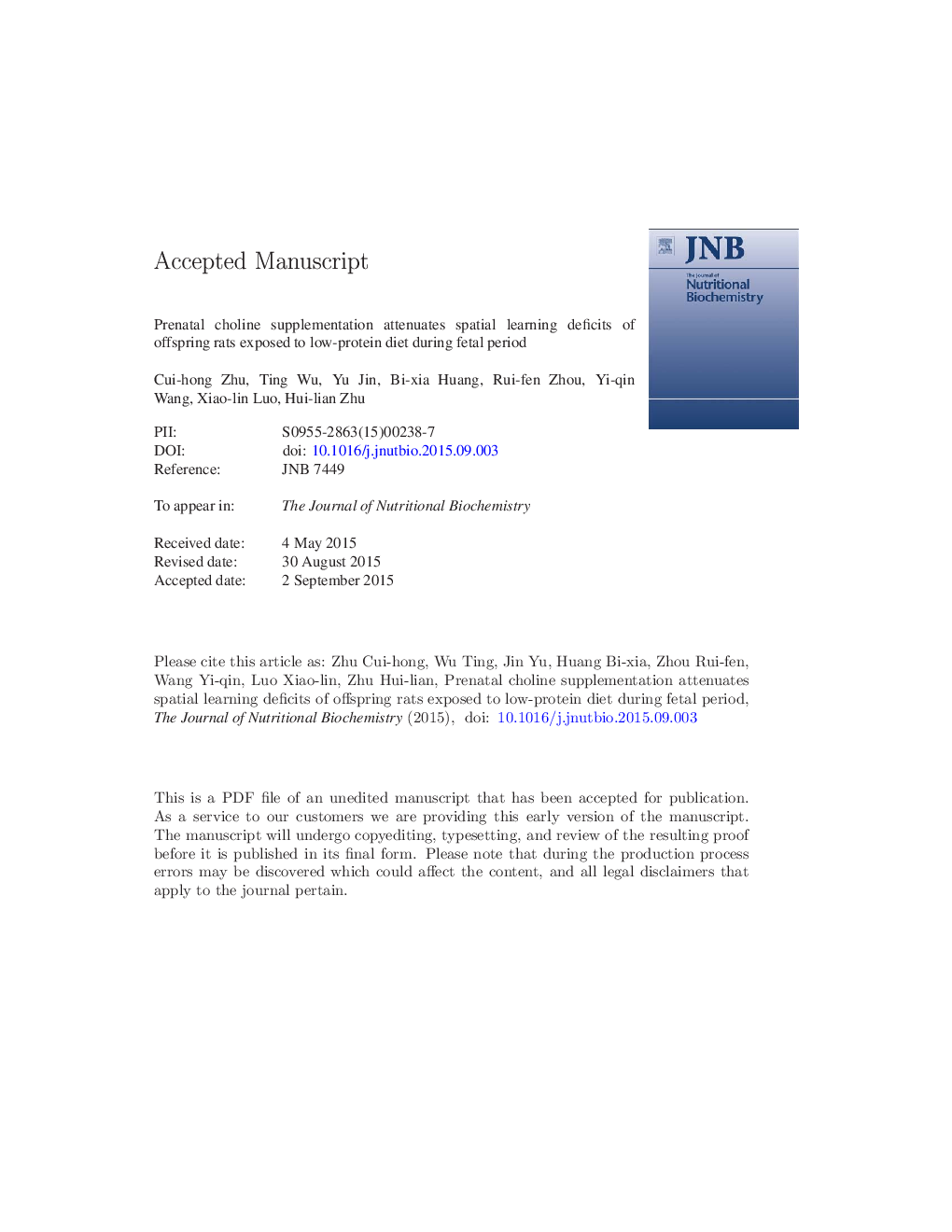| Article ID | Journal | Published Year | Pages | File Type |
|---|---|---|---|---|
| 8336620 | The Journal of Nutritional Biochemistry | 2016 | 31 Pages |
Abstract
Prenatal intake of choline has been reported to lead to enhanced cognitive function in offspring, but little is known about the effects on spatial learning deficits. The present study examined the effects of prenatal choline supplementation on developmental low-protein exposure and its potential mechanisms. Pregnant female rats were fed either a normal or low-protein diet containing sufficient choline (1.1Â g/kg choline chloride) or supplemented choline (5.0Â g/kg choline chloride) until delivery. The Barnes maze test was performed at postnatal days 31-37. Choline and its metabolites, the synaptic structural parameters of the CA1 region in the brain of the newborn rat, were measured. The Barnes maze test demonstrated that prenatal low-protein pups had significantly greater error scale values, hole deviation scores, strategy scores and spatial search strategy and had lesser random search strategy values than normal protein pups (all P<.05). These alterations were significantly reversed by choline supplementation. Choline supplementation increased the brain levels of choline, betaine, phosphatidylethanolamine and phosphatidylcholine of newborns by 51.35% (P<.05), 33.33% (P<.001), 28.68% (P<.01) and 23.58% (P<.05), respectively, compared with the LPD group. Prenatal choline supplementation reversed the increased width of the synaptic cleft (P<.05) and decreased the curvature of the synaptic interface (P<.05) induced by a low-protein diet. Prenatal choline supplementation could attenuate the spatial learning deficits caused by prenatal protein malnutrition by increasing brain choline, betaine and phospholipids and by influencing the hippocampus structure.
Related Topics
Life Sciences
Biochemistry, Genetics and Molecular Biology
Biochemistry
Authors
Cui-hong Zhu, Ting Wu, Yu Jin, Bi-xia Huang, Rui-fen Zhou, Yi-qin Wang, Xiao-lin Luo, Hui-lian Zhu,
